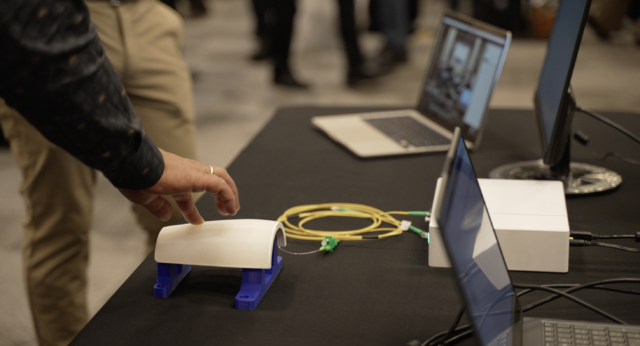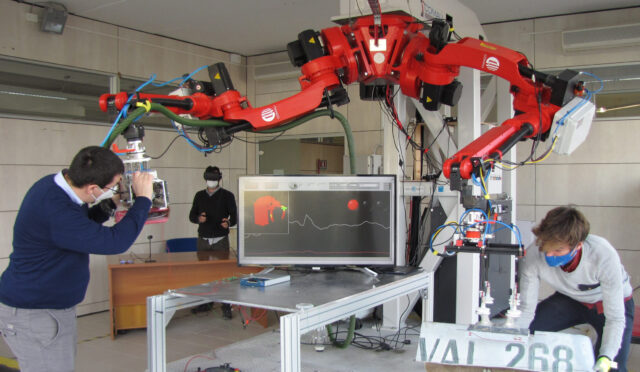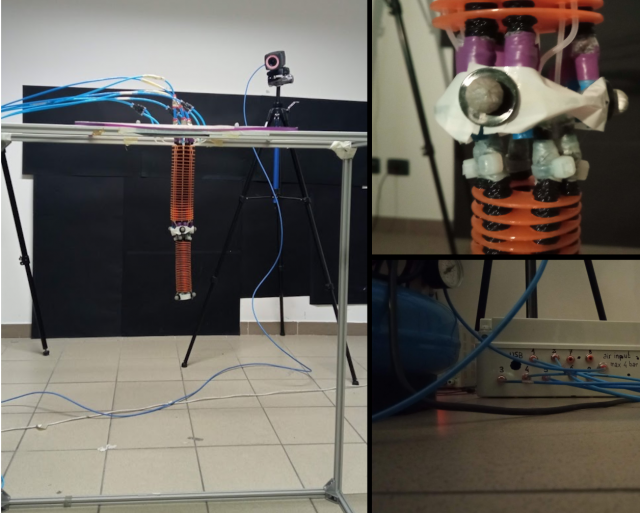Assistance for startup creation
The Technology Transfer Acceleration Company “Toulouse Tech Transfer (TTT)” of the Academy of Toulouse offers companies a range of technological solutions in various fields. It creates value from the results of public research by bringing laboratories and companies together. It is the local operator for the valorization and transfer of technologies from public research to companies, and in particular to SMEs. The objective is clearly to promote business innovation, the development of competitiveness and the creation of jobs and wealth. Its core business is the maturation of inventions from regional research laboratories.
TTT is involved in the entire maturation process:
- Identifying and protecting inventions, notably through patents
- Developing and financing proofs of concept and prototypes
- Transferring innovations to the economic world in the form of licensing agreements or start-up creation
TTT carries the technological and financial risk inherent in these projects in order to maximize the socio-economic impact of public research results and to promote job creation in the region.
By understanding the market’s concerns from the earliest stages, by demonstrating the interest of the innovation for the companies, and by investing and taking charge of the riskiest part of the development of the innovation, TTT allows its industrial partners to reserve their resources for industrialization and commercialization.
TTT intervenes on the whole value chain of technology transfer.
TTT interfaces with laboratories and research teams in line with the needs of the companies. This stage of contact and identification of solutions leads to two scenarios: Either the technology is mature enough to be transferred and commercialized via an operating license, or the technology requires more technical, legal or economic maturation
In the 2nd case, TTT brings its human, technical and financial resources to carry out maturation programs, in partnership with laboratories. TTT provides three types of activities within the framework of these programs
- Technical: development of proofs of concept, prototypes, feasibility studies.
- Legal: protection of results, negotiation of exploitation rights, patent management, regulatory compliance.
- Economic: analysis of the market potential and the ways to access it, definition of the product/market pair, transfer strategy and possibility of creating a company.
Preparation, advice, and submission of patents
The Technology Transfer Acceleration Company “Toulouse Tech Transfer (TTT)” also provides assistance and advices for exploiting & commercializing the results of public research. Notably it provides help for the preparation and the submission of patents.
Toulouse Tech Transfer is mandated by its shareholders (University of Toulouse and CNRS) to manage the intellectual property of their laboratories. TTT is in charge of marketing and negotiating contracts for the exploitation of the laboratories’ intellectual property rights (patent licenses, know-how, etc.). It provides strategic management of intellectual property titles and is committed to negotiate within a timeframe that takes into account operational constraints.
TTT is a private company with profitability objectives. Therefore, the conditions of intervention in the framework of its maturation programs are: A technology from a regional laboratory, an investment in resources, and a convincing business plan with prospects of return on investment.
The advantages for companies are the provision of a single point of contact, reactivity, acceleration of innovation programs, reduction of time to market, reduction of technical, legal and commercial risks and the reduction of the need for equity capital
In addition, the contractual relations and partnership service of LAAS-CNRS is providing technical help to researchers for all project and/or research collaboration projects with industrial and academic partners and the negotiation of contractual acts.
Industrial outreach
The Robotics Department of LAAS-CNRS is conducting many industrial collaborations in the frame of European, national and regional projects. They are related to various aspects of robotics such as human-robot interaction, robot perception, humanoid robotics, aerial robotics and field robotics, with the aim to develop innovative systems and software.
The Robotics department of LAAS-CNRS is also involved in many direct industrial contracts, notably CIFRE PhD funded by the French ANRT. It also has close ties with the industrial cluster Robotics Place, and the cluster Digital 113 which connects, supports and federates the digital actors of Occitanie in order to develop the excellence of their companies
Industrial collaborations with LAAS-CNRS recently induced the installation in Toulouse of two industrial companies whose activity is directly linked to the research activity of the Robotics Department.
-
TOWARD, spin-off of PAL-Robotics, is a French company which was created in October 2020 in Toulouse. This company which is closely collaborating with LAAS-CNRS devoted to robotics Research and Development (R&D). it is the distribution partner for the leading European service robotics company, PAL Robotics. TOWARD focuses its work on software research for robotics and bipedal locomotion, more precisely on the dynamization of walking. https://toward.fr/en/
-
Eureka Robotics France was created in May 2021 by the company Eureka Robotics in Singapore. The latter was created by a researcher from the University of Singapore and the company keeps in its DNA the valorization of research. The creation of a branch of Eureka Robotics France in Toulouse goes in this direction because of its proximity with the LAAS-CNRS. The long-term goal of the company is to provide robot programming software that will make accessible breakthrough technologies that are often complicated to implement today. Two PhD from LAAS have been recently hired by the company.
The Robotics Department of LAAS-CNRS has recently given rise to two joint labs:
-
ROB4FAM (Robots For the Future of Aircraft Manufacturing), joint lab between LAAS-CNRS and Airbus that was created in May 2019. Its creation was motivated by difficulty faced by constructors to implement classical industrial robotic solutions in plane assembly factories. It aims to explore the alternative paradigm of using mobile and versatile robots to support workers in dull, dirty and dangerous task. The scientific and technical challenges concern the complexity of interactions between humans and machines and the development of reactive motion-planning and control in partially known environment. In particular it explores the development of modular robotic solutions https://www.laas.fr/public/fr/rob4fam-un-laboratoire-commun-airbus-laas-cnrs
-
DYNAMOGRADE is a joint lab between LAAS-CNRS and TOWARD/PAL-Robotics that was created in October 2020. The objective of this joint lab is to create a competence center to design, program, produce and market fully autonomous legged robots (humanoids and quadrupeds) able to move and interact in partially structured dynamic environments. The key challenges is to Improve legged robotics along 3 axes: Motion Planning, Modeling and Control of low-level actuators and robots, Whole-Body Model Predictive Control with state feedback and Learning.
https://anr.fr/Project-ANR-21-LCV3-0002
The Robotics Department of LAAS-CNRS is strongly involved in the ANITI Institute which aims to promote exchanges between industrial partners and academics in order to develop new markets and new technological applications involving Artificial Intelligence. ANITI has 3 main missions: scientific research, training and economic development related to AI. ANITI aims to develop a new generation of artificial intelligence called hybrid AI, integrating data driven learning techniques and symbolic or mathematical models that permit us to express constraints and to carry out logical reasoning. ANITI also has ambitious aims with regard to education and industrial development. The LAAS-CNRS is leading the chairs “Cognitive and interactive robotics” (held by Rachid Alami) and “Artificial and Natural Movement” (held by Nicolas Mansard) https://aniti.univ-toulouse.fr/en/
At the regional level, the Robotics Department of LAAS-CNRS is leading with LIRMM since 2022 the Key-Challenge “Human-centered Robotics” of Occitanie, which aims at developing synergies between industrial partners, researchers and the civil society. It provides financial support to collaborative projects to develop robotics solutions for human robot interaction, cobotics, industry 4.0, service, medical, exploratory and field robotics.
https://www.eurobiomed.org/fr/1er-appel-du-defi-cle-robotique-centree-sur-lhumain/
Events, Workshops & Talks
Recent events with industrial partners:
- Science Festival LAAS-CNRS October 15, 2022 Robotics demonstrations open to industrials and the public https://www.laas.fr/public/fr/FDS
- Cobotics Day, welcoming industrial partners and academics organized by AD’Occ, LAAS, LIRMM, and the Robotics Key-challenge of Occitanie, June 30, 2022, https://www.agence-adocc.com/-evenements-/la-cobotique-au-service-des-entreprises/
- Robotics Place Day at MFJA Toulouse June 2022 https://www.mfja.fr/robotics-place-day-a-la-mfja/






